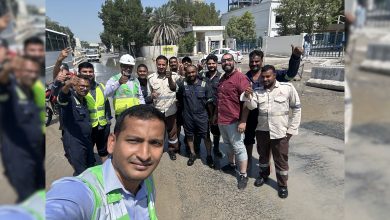A Filipina banker, Marris Hernandez, had a neuroendocrine cancer of the pancreatic head.
“At first I felt pain in my lower abdomen, so I immediately visited a private hospital in Abu Dhabi. They had me on ultrasound, but the doctors did not find anything relating to the pain, only gallstones. Later on, they ran series of tests, they found a tumor in the head of my pancreas,” said Hernandez.
She was admitted to the hospital to remove the stones that may cause jaundice. At the same time, some part of the tumor was taken for examination.
“However, I didn’t feel too well after the procedure and felt bloated and vomited too”, said Hernandez.
After a week, it was confirmed that she had a 4-5cm size tumor which could only be removed by an open complex surgery called Whipple procedure.
“When I learned about my condition, I discussed it immediately with my relatives. They advised me to take a second opinion,” said Hernandez. “They were very worried. They even asked me to go back to Manila and get my treatment done there.”
Doctors at the hospital said Henandez’ case was very serious because it is an extremely rare cancer, usually found in people of older age. The cancer is also hard to diagnose as it presents itself with symptoms usually associated with kidney stones.
In a standard Whipple procedure, the surgeon removes the head of the pancreas, the gallbladder, part of the duodenum which is the uppermost portion of the small intestine, a small portion of the stomach called the pylorus, and the lymph nodes near the head of the pancreas.
The surgeon then reconnects the remaining pancreas and digestive organs so that pancreatic digestive enzyme, bile, and stomach contents flow into the small intestine during digestion. The Whipple procedure can take several hours to perform and requires great surgical skill and experience. The area around the pancreas is complex and surgeons are often challenged by variation in the arrangement of blood vessels and ducts.
When the Whipple procedure was introduced, surgeons were hesitant to utilize the technique due to high mortality rate. In the 1970s, up to 25% of cases failed during the surgery or shortly thereafter. Since then, improvements in diagnosis, staging, surgical techniques, anaesthesia, and post-operative care have reduced the short-term death rate to less than 4% in large hospitals with experienced surgeons.
But mortality rate can still go above 15% if treated at small hospitals or by less experienced surgeons. The Whipple procedure continues to be one of the most demanding and risky techniques, so the American Cancer Society recommends consulting specialized hospitals that perform frequent pancreatic surgeries.
“I am very grateful for the efforts taken by the medical team at Burjeel Hospital. I had almost given up hope after receiving alarming news from the previous hospitals. Words cannot express my appreciation for this second chance at life,” said Hernandez.




